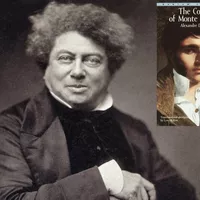Chapter 12. Father and Son (1)
"The king himself." "The king! I thought he was philosopher enough to allow that there was no murder in politics. In politics, my dear fellow, you know, as well as I do, there are no men, but ideas--no feelings, but interests; in politics we do not kill a man, we only remove an obstacle, that is all. Would you like to know how matters have progressed? Well, I will tell you. It was thought reliance might be placed in General Quesnel; he was recommended to us from the Island of Elba; one of us went to him, and invited him to the Rue Saint-Jacques, where he would find some friends. He came there, and the plan was unfolded to him for leaving Elba, the projected landing, etc. When he had heard and comprehended all to the fullest extent, he replied that he was a royalist. Then all looked at each other,--he was made to take an oath, and did so, but with such an ill grace that it was really tempting Providence to swear him, and yet, in spite of that, the general was allowed to depart free--perfectly free. Yet he did not return home. What could that mean? why, my dear fellow, that on leaving us he lost his way, that's all. A murder? really, Villefort, you surprise me. You, a deputy procureur, to found an accusation on such bad premises! Did I ever say to you, when you were fulfilling your character as a royalist, and cut off the head of one of my party, 'My son, you have committed a murder?' No, I said, 'Very well, sir, you have gained the victory; to-morrow, perchance, it will be our turn. ' " "But, father, take care; when our turn comes, our revenge will be sweeping." "I do not understand you." "You rely on the usurper's return?" "We do." "You are mistaken; he will not advance two leagues into the interior of France without being followed, tracked, and caught like a wild beast." "My dear fellow, the emperor is at this moment on the way to Grenoble; on the 10th or 12th he will be at Lyons, and on the 20th or 25th at Paris." "The people will rise." "Yes, to go and meet him." "He has but a handful of men with him, and armies will be despatched against him." "Yes, to escort him into the capital. Really, my dear Gerard, you are but a child; you think yourself well informed because the telegraph has told you, three days after the landing, 'The usurper has landed at Cannes with several men. He is pursued.' But where is he? what is he doing? You do not know at all, and in this way they will chase him to Paris, without drawing a trigger." "Grenoble and Lyons are faithful cities, and will oppose to him an impassable barrier." "Grenoble will open her gates to him with enthusiasm--all Lyons will hasten to welcome him. Believe me, we are as well informed as you, and our police are as good as your own. Would you like a proof of it? well, you wished to conceal your journey from me, and yet I knew of your arrival half an hour after you had passed the barrier. You gave your direction to no one but your postilion, yet I have your address, and in proof I am here the very instant you are going to sit at table. Ring, then, if you please, for a second knife, fork, and plate, and we will dine together." "Indeed!" replied Villefort, looking at his father with astonishment, "you really do seem very well informed." "Eh? the thing is simple enough. You who are in power have only the means that money produces--we who are in expectation, have those which devotion prompts." "Devotion!" said Villefort, with a sneer.
"Yes, devotion; for that is, I believe, the phrase for hopeful ambition." And Villefort's father extended his hand to the bell-rope, to summon the servant whom his son had not called. Villefort caught his arm.
"Wait, my dear father," said the young man, "one word more." "Say on." "However stupid the royalist police may be, they do know one terrible thing." "What is that?" "The description of the man who, on the morning of the day when General Quesnel disappeared, presented himself at his house." "Oh, the admirable police have found that out, have they? And what may be that description?" "Dark complexion; hair, eyebrows, and whiskers, black; blue frock-coat, buttoned up to the chin; rosette of an officer of the Legion of Honor in his button-hole; a hat with wide brim, and a cane." "Ah, ha, that's it, is it?" said Noirtier; "and why, then, have they not laid hands on him?" "Because yesterday, or the day before, they lost sight of him at the corner of the Rue Coq-Heron."

